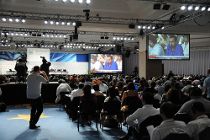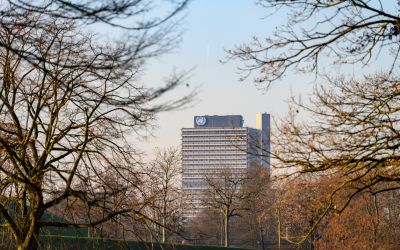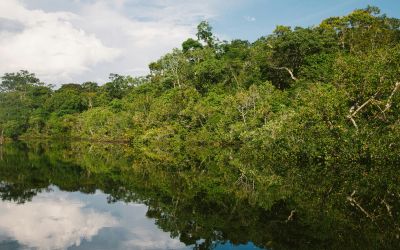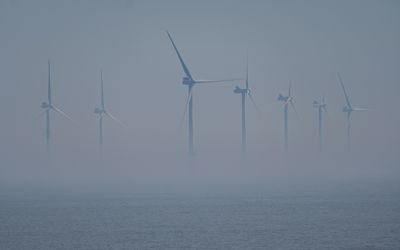Day seven of COP16 and progress is being made
Analysts who have been discussing the hope that the last week of climate change talks in Cancun would bring with it success may be proven right as China moves ahead with new emission target promises.

Analysts who have been discussing the hope that the last week of climate change talks in Cancun would bring with it success may be proven right as China moved ahead with new emission target promises.
Yesterday (December 6) China offered for the first time to submit its voluntary carbon emissions target to a binding UN resolution, encouraging climate change talks towards a successful outcome.
Talks at the 16th Conference of Parties (COP16) are split over how to secure existing pledges made at COP15 in Copenhagen, which ended in a brief non-binding agreement. China's offer to make its existing, domestic pledge to slow growth in carbon emissions binding under a U.N resolution is a compromise it hopes will encourage developed countries to continue with the current Kyoto Protocol.
Huang Huikang, the Chinese Foreign Ministry's envoy for climate change talks said: "We can create a resolution and that resolution can be binding on China. Under the [U.N Climate] Convention, we can even have a legally binding decision. We can discuss the specific form. We can make our efforts a part of international efforts.
"We're willing to compromise, we're willing to play a positive and constructive role, but on this issue [Kyoto] there's no room for compromise."
As Russia, Japan and Canada have decided not to back an extension to the Kyoto Protocol, analysts are pleased with China's proposal to move forward with an extended treaty. Jennifer Morgan from the Washington-based World Resources Institute, said: "This is a gamechanger."
Developing nations should be pleased with China's commitment, as they want to continue the first 2008-2010 round of Kyoto, which binds the emissions of nearly 40 developed countries and conflicts with the ideas of some developed nations.
However, Bolivia's views on progress aren't quite so positive. Yesterday they commented that the policies of developed nations were the equivalent of genocide, signalling no compromise to their demands, which are the most radical of any at Cancun.
Pablo Solon, head of Bolivia's delegation said that 300,000 people a year were dying as a result of natural disasters such as floods, droughts and storms. "Is that not talking about genocide?" he said.
Solon defended Bolivia's goal of limiting global warming to one degree Celsius above pre-industrial times (1700), the strictest goal to come out of Cancun.
"I have to say that we are concerned because the texts are not ready to be used by ministers to finalise," said EU Climate Commissioner Connie Hedegaard.
The Cancun talks were nearing an agreement to launch long-term climate aid for developing countries, as well as schemes to protect rainforests and share low-carbon technologies, but ministers would likely delay detail until next year, and those deals may hinge on agreement on whether to extend Kyoto.
Failure in Cancun may call into question the role of the UN in brokering a shift to a low-carbon global economy, and leave carbon markets in the lurch after 2012.
Monday also saw the EU make a decision to delay a deal to use carbon markets to reward countries which protect their tropical forests.
The aim of a U.N. deal on tropical forests is to pay countries which preserve their forests, and cut carbon emissions, known as Reduced Emissions from Deforestation and Degradation (REDD). The EU believes that it is too early in the process to start rewarding countries by giving them tradable carbon offsets, which they can then sell to developed nations to meet their carbon emission caps.
Hedegaard told reporters at COP16: "The risk is if you do it in the wrong way that you risk undermining the whole carbon market. We hope that we can have an overall political understanding on REDD ... here from Cancun.
"We think that we should be careful. It might have some impacts on the whole carbon market. We need to be very sure what we're doing. It's one of the things that needs somewhat more details."
Author: Charity Knight | Climate Action
Image: UN Climate Talks | flickr






_400_250_80_s_c1.jpg)